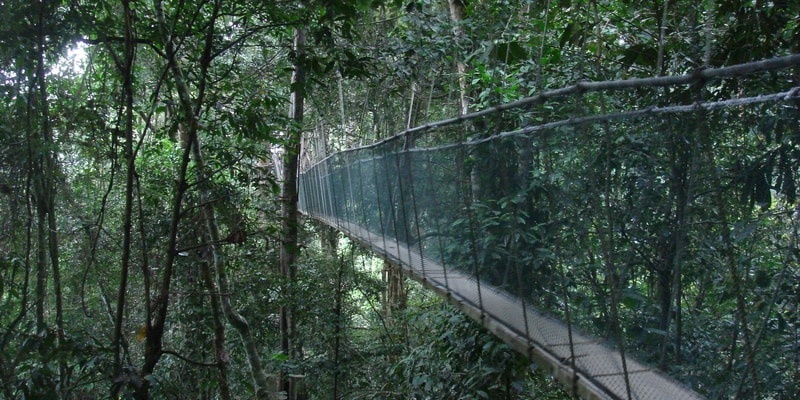World Elephant Day 2025: Protecting Matriarchs, Memories, and Our Planet
What began in 2012 as a call to stop elephant poaching has evolved into a global conservation movement supported by over 100 wildlife organizations. World Elephant Day, observed every 12 August, has become a rallying point for NGOs, governments, scientists, rangers, and ordinary citizens to work together for one mission: keep elephants alive in their natural habitats. The inaugural day was marked by the documentary Return to the Forest, narrated by William Shatner, which shed light on the plight of captive Asian elephants. Since then, World Elephant Day has grown beyond raising awareness; it has become a platform for action, from shutting down ivory markets to creating safe corridors for elephants.Theme of 2025: Matriarchs & MemoriesThis year’s theme celebrates the wise female leaders of elephant herds, matriarchs who guide their families using decades of experience and memory. It also pays tribute to the women protecting elephants on the frontlines of conservation. Elephants are known for strong family bonds and deep intelligence. Matriarchs remember migration routes, water sources, and dangers, knowledge that keeps herds alive. In the same way, women rangers, researchers, and community leaders across Africa and Asia lead human conservation efforts with courage and commitment. The 2025 campaign reminds us that leadership, whether elephant or human, can mean survival.Why Elephants Matter for the PlanetElephants are keystone species, nature’s own ecosystem engineers. They plant seeds through their dung, open forest paths by knocking down trees, and create waterholes during droughts. Without them, forests could become overgrown, grasslands could shrink, and many species would lose vital habitat. In African rainforests, elephants help slow-growing hardwoods flourish—trees that store far more carbon than fast-growing ones—making them unexpected allies in the fight against climate change. Protecting elephants doesn’t just save a species; it strengthens entire ecosystems, from tiny insects to the climate itself.The Numbers Tell the StoryA century ago, Africa’s savannahs and forests were home to around 12 million elephants, but today only about 400,000 remain. Asian elephants face an even steeper decline, with just 40,000 left in the wild, now classified as Endangered. The threat is relentless: poachers kill roughly 100 African elephants every single day for their ivory, meat, and body parts. Yet, amidst this crisis, there is hope.In Kenya, focused conservation efforts have led to a 52% rise in elephant numbers over recent decades, while Nepal has proudly marked years without a single poaching incident. These contrasting figures reveal both the urgency of the problem and the possibility of recovery—clear proof that when humanity unites for a cause, even the tide of extinction can be turned.India’s Role in World Elephant Day 2025India, home to 60% of the world’s wild elephants, will host World Elephant Day 2025 in Coimbatore. Through Project Elephant, 33 reserves, 150 corridors, and nationwide awareness involving 12 lakh students, India champions habitat protection, human-elephant coexistence, and cultural reverence, reinforcing its global leadership in elephant conservation. By hosting the national celebration of World Elephant Day 2025, India is not only reaffirming its leadership in elephant conservation but also sending a powerful message to the world: safeguarding elephants is not just about saving a species but about preserving cultural heritage, ecological balance, and the shared future of people and wildlife.Ways to Make a Difference This World Elephant DayThere are many meaningful ways to take part in World Elephant Day and make a difference. You can start by signing the pledge, joining millions worldwide in committing to never buy ivory, supporting ethical sanctuaries, and speaking out for elephant safety. Spreading the word is just as important as sharing facts, videos, or personal messages using #WorldElephantDay and #MatriarchsAndMemories to spark conversations. Donations or symbolic adoptions can directly support conservation organizations such as Wildlife SOS, the Elephant Reintroduction Foundation, or the David Sheldrick Wildlife Trust, with funds helping care for and rescue elephants. Getting involved in community activities, from elephant art contests to film screenings of When Elephants Were Young, also helps keep awareness alive. And if you travel to regions with wild herds, be a responsible traveler by avoiding elephant rides or shows and instead supporting ethical wildlife tours that respect these magnificent creatures in their natural environment.A Symbol of Nature’s WisdomElephants embody patience, memory, and community values that humanity can learn from. When a matriarch falls, her knowledge is lost forever, impacting her herd for generations. Saving elephants is more than protecting a species; it’s preserving wisdom, culture, and the health of our planet. On 12 August 2025, whether you’re signing a pledge, sharing a fact, or donating to a conservation project, remember: every small action adds to a global movement. When we protect elephants, we’re not just saving matriarchs and memories; we’re defending the future of biodiversity, ecosystems, and the very climate we depend on. In the end, protecting them is protecting ourselves. And that’s a cause worth standing for today and every day.

.jpg)
.jpg)
.jpg)
.jpg)



.jpg)
.jpeg)
.jpg)
 (1).jpeg)